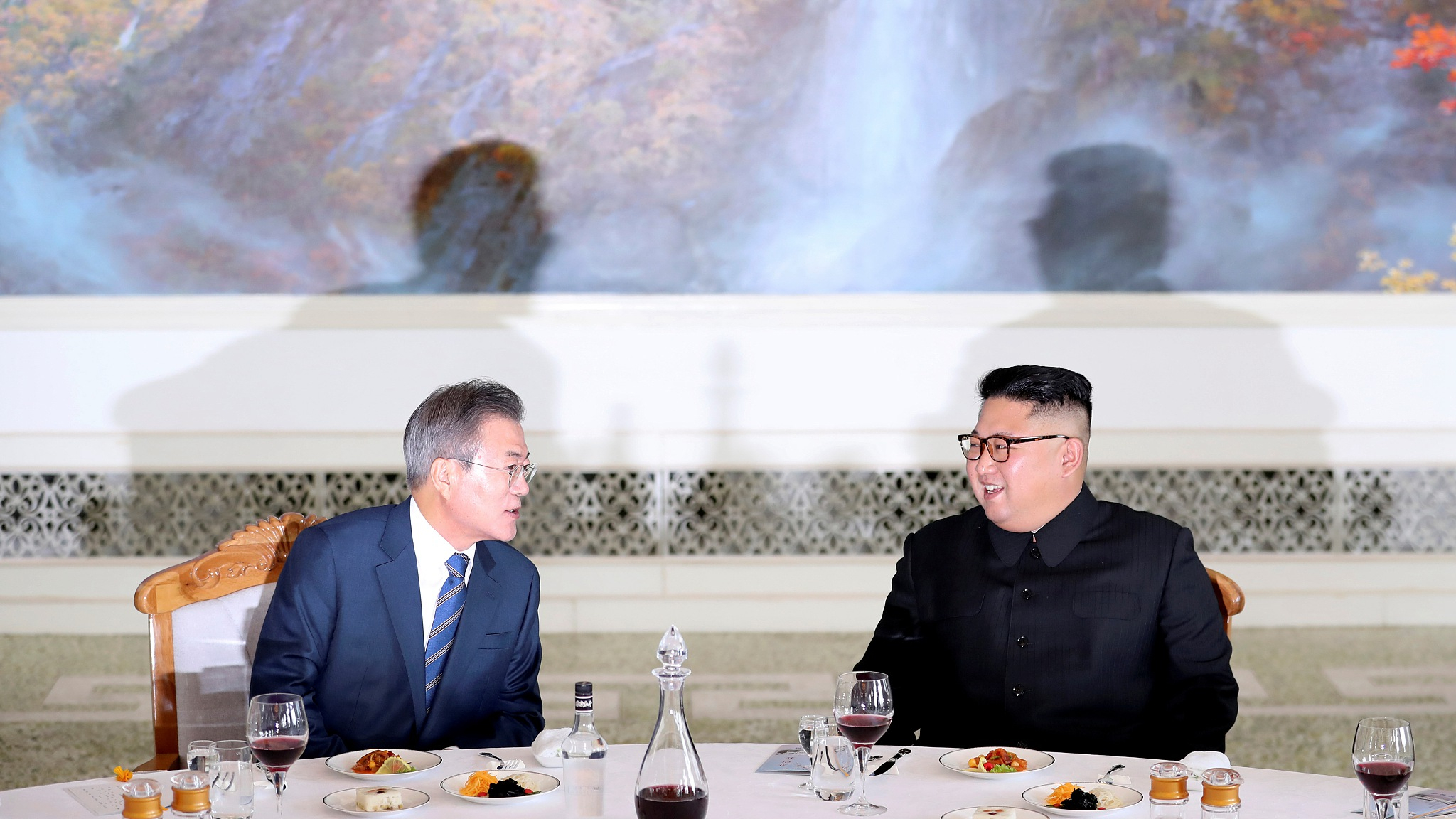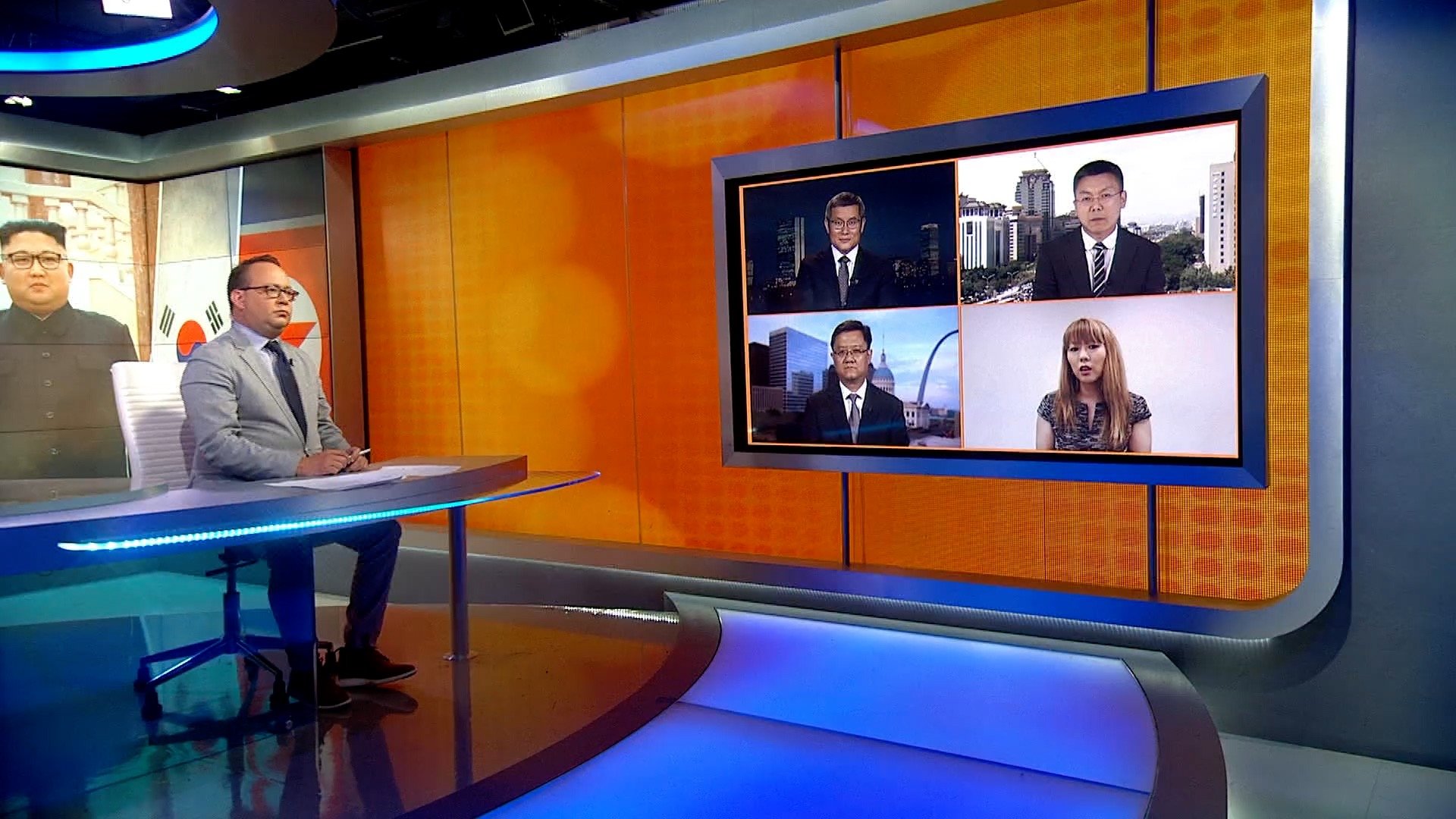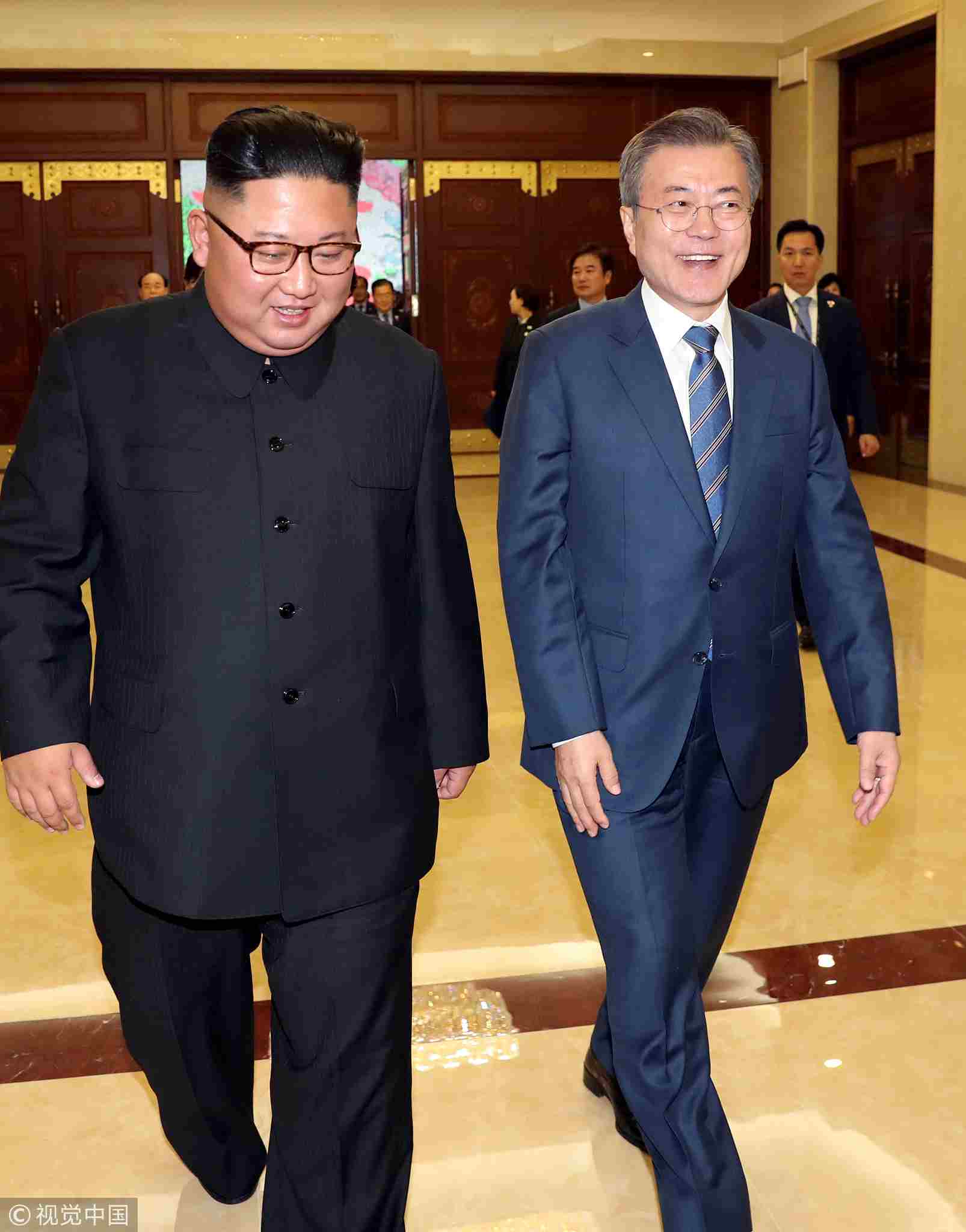
Opinions
12:57, 21-Sep-2018
Opinion: DPRK-ROK summit established trust, not real commitment
Updated
12:16, 24-Sep-2018
CGTN's The Heat

Democratic People's Republic of Korea (DPRK) leader, Kim Jong Un, and the president of the Republic of Korea (ROK), Moon Jae-in, held important talks this week in Pyongyang. The summit made some significant progress on issues like denuclearization and bilateral ties. What they accomplished may also have an impact on relations between the United States and the two Koreas.
The two sides agreed to bridge their divide by easing hostilities, eliminating any threats of war and seeking cooperation in economic and sports fields. The achievement includes allowing outside experts into the DPRK to oversee the dismantlement of its engine test site and missile launch pad, reconnecting railways and roads by the end of the year, and a joint bid to host the 2032 summer Olympics.
Despite all these accomplishments, the US has yet to secure a concrete denuclearization commitment from the DPRK. Jenny Town, a research analyst at the Stimson Center, warned against overestimating the message from the summit.
"DPRK is not going to do this in a unilateral process; it needs the participation of the US," Town said. "The official tone is just that they are willing to do measures in denuclearization if the US is doing their part."
Zhao Ma, an associate professor of modern Chinese history and culture at Washington University, also agreed that the summit was more of a trust-building meeting than a substantial step on the denuclearization issue.
"The backdrop of this summit is the lack of progress made after the Trump-Kim summit in June," said Zhao. “It comes at a time when Trump needs some scores on the board and ROK wants to buy more time to future negotiation."
Many experts have been deciphering the motivation of the DPRK on building its own nuclear weapons. Given the huge gap in military power between the US and DPRK, most people agreed that a threat of nuclear weapons serves more of a bargaining chip than an ambition to challenge the US.
Myung-koo Kang, a professor of political science at Baruch College of the City University of New York, said that the DPRK's gesture on the issue indicated a self-defense approach.
01:14

“Their missiles site is closed merely for some reciprocal compensation from the US side,” said Kang.
The 70th-anniversary military parade of the DPRK did not present the long-range rocket, which is widely considered as a flagship of the country's military achievement. That was seen as a sign of backing down and complying with the US goal of a disarmed DPRK.
Qinduo Xu, a senior fellow at the Pangoal Institution, said that the ideal goal of the DPRK is to normalize its diplomatic relations with the US without giving up its nuclear weapons, which falls out of the acceptable scope for the US. A more realistic goal is to gain room for its development.

DPRK leader Kim Jong-Un and ROK President Moon Jae-In leave after watching the large-scale gymnastic and artistic show titled "The Glorious Country" at the May Day Stadium in Pyongyang on Sep 19, 2018. /VCG Photo
DPRK leader Kim Jong-Un and ROK President Moon Jae-In leave after watching the large-scale gymnastic and artistic show titled "The Glorious Country" at the May Day Stadium in Pyongyang on Sep 19, 2018. /VCG Photo
“The first goal is to officially end the war with ROK,” said Qinduo. “The second is to lift sanctions from the United Nations and hopefully normalize its diplomatic relations with the US in a parallel manner.” However, he added that progress towards a normalized diplomatic relationship was not yet in sight.
At the same time, the US has every reason to hold on to the UN sanctions until the end of the negotiation, especially when DPRK was sending opposite signals in investment and opening up. On the other hand, the sanctions were loosened by foreign support from Russia, the ROK, and China.
“The sanction system is gradually collapsing with other major powers backing the country,” said Qinduo. “And the fact that China holds 90 percent of international trade with DPRK made the role of China in the denuclearization process essential.”
Looking forward, the momentum of achieving something substantial is accumulating. A new era of peaceful development of the Korea Peninsula has begun.
“Two steps forward and one backward is still considered making progress,” said Kang.
The Heat with Anand Naidoo is a 30-minute political talk show on CGTN. It airs weekdays at 7:00 a.m. BJT and 7:00 p.m. Eastern in the United States.
(If you want to contribute and have specific expertise, please contact us at opinions@cgtn.com)

SITEMAP
Copyright © 2018 CGTN. Beijing ICP prepared NO.16065310-3
Copyright © 2018 CGTN. Beijing ICP prepared NO.16065310-3